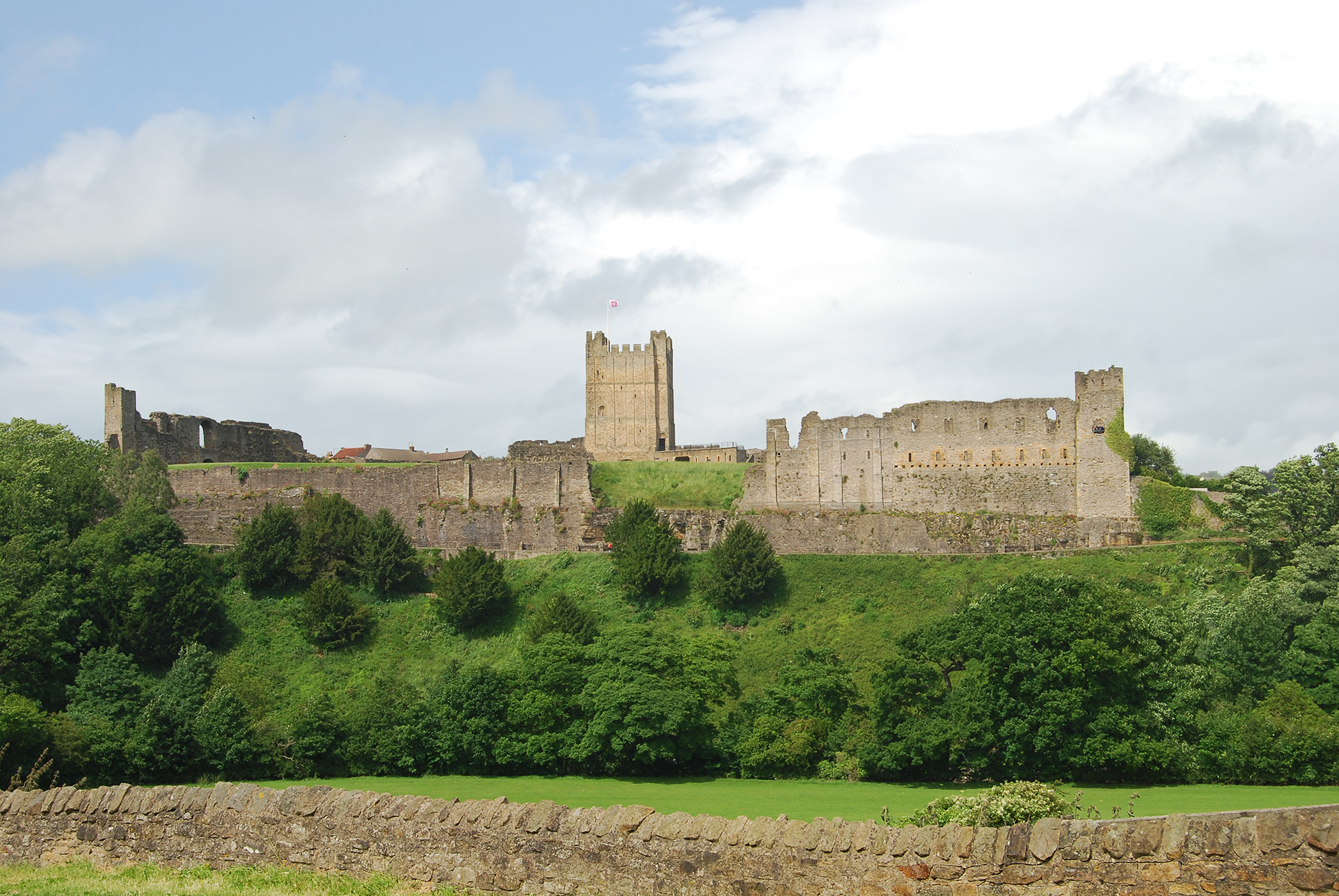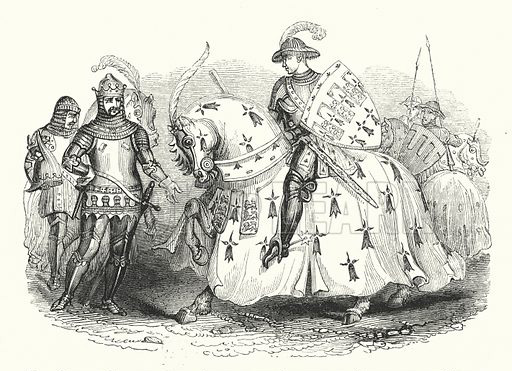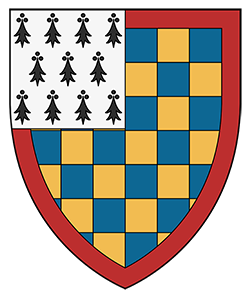John of Brittany - 4th Earl of Richmond
John of Brittany was an English Nobleman and member of the Duchy of Brittany and the House of Dreux. He was the second surviving son of John II, Duke of Brittany, and his mother was Beatrice of England, daughter of King Henry III of England.

John's father held the title of Earl of Richmond but was not very active in the political affairs of England. John was born in 1266 in Bretagne, France, but was raised at the English court with Edward I's son, Henry, though Henry was sickly and would die in 1274 at the age of six.
John participated in knightly tournaments in his younger years, which sharpened his fighting skills, but he never stood out as much of a soldier.
John of Brittany served his uncle, Edward I, and his cousin, Edward II, as a soldier and a diplomat. In 1294, John traveled to France as Lieutenant of the Duchy after the French King confiscated King Edward's Duchy of Aquitaine, but he was unsuccessful in taking Bordeaux. In 1295, he was forced to flee the town of Rions, and in January of 1297, he was defeated at the Battle of Bonnegarde along with Henry de Lacy, 3rd Earl of Lincoln.
Despite failing in France, Edward I kept him in high regard and treated him almost like a son. John was likely at the Battle of Falkirk in 1298 during the Scottish Wars of Independence. In 1300, he was at the Siege of Caerlaverock and was commemorated in the Roll of Caerlaverock, which named each noble and described their banner. He is listed immediately after Edward I in the Roll.
In 1305, John's father, The Duke of Brittany, was attending the coronation of Pope Clement V in Lyon, France, and was leading the Pope's horse through the crowd during the celebrations when a wall, which had lots of spectators on top of it, gave way and collapsed on top of the Duke. He died four days later. On October 15th, 1306, John received his father's title of Earl of Richmond. John's older brother, Arthur, became the Duke of Brittany.

John was viewed in the English court as a trusted diplomat and skilled negotiator, and his connections in Brittany and France were of value. In 1309, he went to see Pope Clement V on behalf of Edward II's favorite, Piers Gaveston. He did not share the antagonistic attitudes towards Gaveston held by other earls.
The Ordinances of 1311 were drawn up in 1311; they consisted of a series of regulations imposed on King Edward II by the peerage and clergy of England to restrict the King's power. Eight earls, seven bishops, and six barons, twenty-one in all, were signatories of the Ordinances, referred to as the Lords Ordainers. John of Brittany was among them and was considered loyal to Edward II, as he was his cousin.
In 1312, Piers Gaveston was killed by Thomas of Lancaster and other nobles. John and Gilbert de Clare reconciled the nobles with Edward II.
In 1322, Thomas of Lancaster rebelled and was defeated at the Battle of Boroughbridge. John of Brittany was present at his trial when Lancaster was sentenced to death.
Robert the Bruce invaded England and brought his army south, crossing the Solway Firth and heading towards Yorkshire. Edward II and his wife Isabella had taken up residence at Rievaulx Abbey. As the Scots approached, the only thing between them and Edward was an English force led by John of Brittany. In 1322, the Battle of Old Byland ensued, which turned into a rout in favor of the Scots. John was taken prisoner and remained in captivity until 1324 when he was released for a ransom of 14,000 marks.
In March 1325, John made a final return to France and made himself a clear opponent of Edward II for the first time. Edward confiscated his lands in England. John sided with Edward's wife, Queen Isabella, who had been sent on a diplomatic mission to France and disobeyed Edward's orders to return to England. In 1327, when Edward II was forced to abdicate the crown to his son Edward III, John's lands in England were restored.
John of Brittany died in France on January 17th, 1334, and was buried in the Church of Franciscans in Nantes. He never married and, as history shows, never had any children. His nephew, John, son of Arthur, succeeded him as the Earl of Richmond.
